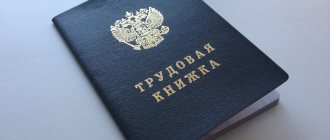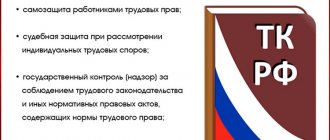Before we talk about the maximum duration of a business trip, let's remember what a business trip is in principle.
According to the Labor Code of the Russian Federation, a business trip is recognized as a trip by an employee by order of the employer for a certain period of time to perform an official assignment outside the place of permanent work (Article 166 of the Labor Code of the Russian Federation). At the same time, the specifics of sending employees on business trips are established by the Government of the Russian Federation (Resolution of the Government of the Russian Federation of October 13, 2008 N 749).
Duration of a business trip: how is the duration of the trip calculated?
The day of departure on a business trip is the date of departure of the train/plane/other transport from the place of permanent work of the seconded employee, and the day of arrival is the date of arrival of the transport at the place of permanent work. Moreover, if the station/airport is located outside the populated area, it is necessary to take into account the time it will take the employee to get to/from the station/airport (clause 4 of the Regulations). The actual duration of the employee's stay on a business trip is determined by the travel documents presented by him (clause 7 of the Regulations).
According to clause 4 of the “Regulations”, the decision on the duration of a business trip is made by the head of the organization, guided by considerations of production and other needs, the complexity of the work ahead, etc. Therefore, the maximum period of stay on a business trip can be any, that is, unlimited. The employer has the right to use the provisions of Instruction No. 62 at the present time, if they do not contradict the Labor Code of the Russian Federation. Since the Labor Code does not regulate the minimum and maximum duration of a business trip, the employer has the right to adhere to paragraph 2 of the Instructions, which establishes the minimum duration of a business trip - 24 hours. If the employee completed the task and returned to the main place of work on the same day, a travel certificate is not issued. The day of departure of the business traveler and the day of arrival The day of departure for a business trip is the date of departure of the train, departure of the plane, departure of the bus, or taxi.
https://youtu.be/rq9ZQafKrmY
Making an order
The organization's personnel officer draws up an order to send him on a business trip. There are two types of forms: form T-9 - for one employee and form T-9a - for a group of employees at once. The order can be drawn up in free form, without using an approved form, but it must indicate:
- details of the employing organization;
- FULL NAME. and the position of the employee;
- departure point;
- destination;
- length of stay on the trip;
- purpose of the trip;
- daily allowance amount.
The head of the company signs the document and returns it to the HR department. The traveler gets acquainted with the order and signs it. If the trip is planned to be long and long, the employee, independently or with the help of persons authorized by the organization, orders travel tickets and reserves a hotel room for accommodation. Based on the order and a preliminary estimate of upcoming expenses, the company’s accounting department calculates the amount of the advance, which should include daily allowance, funds for travel and accommodation (if they have not been paid in advance). An advance can be given to an employee in two ways:
- cash from the organization's cash desk;
- non-cash, by transferring funds to the employee’s card.
The term for payment of the advance is determined by the local regulations of the organization. When traveling, you should collect all checks and receipts, since when writing an expense report, they are used as confirmation of expenses incurred.
As stated in paragraph 3 of Art. 217 of the Tax Code of the Russian Federation, tax-free daily allowance: 700 rubles - when traveling within the territory of the Russian Federation, and 2500 rubles - when traveling abroad. The employer has the right to set any amount of daily allowance, but in this case, personal income tax must be deducted from the amount exceeding the specified amounts (clause 3 of Article 217 of the Tax Code of the Russian Federation). Daily allowances are accrued for each day an employee is on a business trip, including the day of departure and return. The cost of travel and accommodation must be confirmed by tickets, checks and receipts. Other expenses related to business travel may be reimbursed by a separate decision of the employer.
Duration of business trips and their payment in accordance with the norms of the Labor Code of the Russian Federation
- What is a business trip
- Who determines the duration of a business trip and by what criteria?
- The day of departure of the business traveler and the day of arrival
- What documents does the traveler provide at the end of the trip and why?
- How is travel time paid?
- Calculation of payment for business trip days
- Calculation of daily allowances
- A little about taxation
Enterprise employees may leave their workplace to carry out work assignments in another city or country. This kind of work is possible only by written order from management and is called a business trip. The procedure for registering a business trip is enshrined in the Labor Code of the Russian Federation.
What is average earnings
Average earnings (AE) is the average amount of wages, other payments and remunerations paid by the employer to the employee in the billing period.
The procedure for calculating SZ is indicated in Art. 139 of the Labor Code of the Russian Federation and Government Decree No. 922 of December 24, 2007. Under any labor regime, the calculation of such wages for an employee is made based on the salary actually accrued to him and the time actually worked by him for the 12 calendar months preceding the period during which the average salary is retained for the worker . Average daily earnings are determined by the formula:
The average salary for a business trip is calculated using a simple formula: the average daily salary is multiplied by the number of days worked away from the main location:
Calculation example
Let's give an example: engineer Semyon Nikolaevich Petrov receives a monthly salary of 30,000 rubles. His annual income is 360,000. The average number of working days is 191 days per year. The business trip lasted 4 working days. The average daily income of an employee in this case: 360,000 / 191 = 1884 rubles. For the trip, Semyon Nikolaevich will receive 1884 × 4 = 7536 rubles.
Since all the days were work days, he will not lose anything in income.
Also, in addition to working hours, the head of the enterprise must pay the employee’s expenses during a business trip (for example, the cost of travel tickets, renting a hotel room, meals). Payment for travel allowances is made only if the employee has supporting documents confirming the expenses.
Long-term business trips - how many days?
Business trip of an employee According to the Labor Code of the Russian Federation, there are ICs on the territory of Russia and outside the territory of the Russian Federation. Also, trips for the purpose of carrying out management assignments are classified as follows:
A long business trip does not have a legally confirmed frequency, so the duration of such a travel insurance policy is determined by the employer himself, depending on the complexity and scope of the tasks assigned, and is standardized in local legal regulations and the organization’s regulations on employee business trips.
https://youtu.be/2DUJtP3VCLg
Local business trip: paperwork, 2020
It is customary to call a local trip a business trip that does not require the employee to travel outside the locality in which the employing organization is located. An employee's business trip on a short trip is documented using a memo so that his absence from the workplace is not considered absenteeism. Expenses are not reimbursed in any way, since they simply do not exist (but if the employee still manages to spend his money on travel, the employer will be obliged to reimburse his expenses based on the documents provided).
Long business trip
The only thing that can be said about the duration of a business trip is that its duration must be clearly defined by employers, i.e. the business trip cannot be indefinite. This is directly stated in the Labor Code. Duration of the business trip The employer determines the duration of the business trip taking into account the complexity, volume and other features of the job assignment given to the employee who is sent on a business trip (clause 4 of the Regulations, approved by Decree of the Government of the Russian Federation of October 13, 2008 N 749 (hereinafter referred to as the Regulations)). Consequently, an employee can be sent either on a one-day business trip or on a long business trip. Duration of a business trip: how is the duration of the trip considered? The day of departure for a business trip is the date of departure of the train/plane/other transport from the place of permanent work of the posted employee, and the day of arrival is the date of arrival of the transport at the place of permanent work.
Question No. 1: is it possible to send an employee to the same city?
Answer: yes, you can.
The Labor Code defines a business trip as a trip by an employee by order of the employer for a certain period of time to fulfill an official assignment outside the place of permanent work (Article 166 of the Labor Code of the Russian Federation).
As we can see, we are talking specifically about the place of work, and it is indicated in the employment contract (Article 57 of the Labor Code of the Russian Federation). As a rule, the employment contract specifies the name of the organization and its address as the place of work. It turns out that sending an employee to perform a work assignment to another organization, even if located in the same city and even on the same street, can formally be a business trip. This conclusion is confirmed by the norm of paragraph 3 of the Regulations on Business Travel*. It clarifies that the place of permanent work is considered to be the location of the organization (structural unit), the work in which is stipulated by the employment contract.
Thus, if an employee will perform work in another organization in the same city, then he can be issued a business trip. In this case, there is no need to pay daily allowances, since the employee has the opportunity to return to his place of residence every day (clause 11 of the Business Travel Regulations). There is also no need to pay living expenses. Otherwise, the business trip in this case is processed in the usual manner. But here another difficulty may await the employer. And this is our second question.
Possible duration of the trip
Foreign employees may also be sent on travel, but provided that they have permission to carry out activities in the territory in which the official task will be performed. If there is no patent, the duration of the trip cannot exceed 10 days.
Long business trips Having determined the billing period, the accountant removes from it those payments that the employee received while not working: disability benefits, vacation pay, days of downtime due to the employer’s fault, maternity leave, etc. In other words, to calculate average earnings, we take in Pay attention only to the income received for the time actually worked.
As a result, in order to obtain the average daily earnings, payments received in the billing period for the time actually worked are divided by the number of days worked in the billing period.
Timesheets
During a work trip, the employee retains his workplace and receives wages. The tariff for this period is equal to the average daily earnings if the trip falls on weekdays, or double the average daily earnings if going to work on weekends or holidays. The time sheet (form T-13) must reflect the hours worked of all employees sent on business trips. Based on the order, travel days are marked in the timesheet with the letter code “K” or the digital code “06”. The length of time worked on these days is not indicated, since they are paid according to average earnings and the actual hours worked on these days are not taken into account.
If a short deadline has been allocated for completing work or assignments, but there is a lot to be done, and you have to work harder than on ordinary days, then this will also need to be reflected in the report card using the code that is adopted for this in the organization. Work will be paid at an overtime rate.
8.1. duration of business trip
Registration of an extension The employer supplements an already issued order or accepts a new one. The possibility of extending a business trip also remains at the discretion of the manager responsible for the purposes of the business trip and who sent the employee on the trip. The employer has the right to accept an order in form T9, which indicates:
- information about the employee, his personnel number;
- purpose of the trip;
- the expected date of change in the duration of the business trip.
There is no need to issue a travel permit or renew it, but the employer has the right to do this at his own discretion. Are weekends included? The business trip includes days off, which must be paid double. If, by agreement with the employer, weekends still remain non-working days, then payment will not be accrued.
Business trip: paperwork 2020
As a result of the changes introduced by Government Decree No. 771 dated July 29, 2015, only two documents are currently used to officially register a business trip:
- An order in form T-9 or T-9a is the main form that determines the direction, purpose of the trip, its duration, etc.
- An advance report in form AO-1 is a document with which an employee proves the expenses incurred by him with the attachment of supporting documents.
In accordance with the changes that have come into force, it is no longer necessary to fill out an official assignment and travel certificate, as well as register departure in a special journal. At the same time, organizations that are accustomed to this method of registration may not refuse to draw up the above papers, especially since this is not prohibited by law. In this case, the procedure for documenting a business trip must be prescribed in the internal local regulations of the organization.
Maximum duration of a business trip within the Russian Labor Code
According to the Labor Code of the Russian Federation, a business trip is a trip to carry out orders from the management of an enterprise; therefore, as soon as the event specified for the purpose occurs, it must end. Paragraph 4 of Regulation No. 749 provides an explanation that the day of departure and return from a business trip to the location of permanent work is included in the period of a business trip. Moreover, if the vehicle in which the posted employee gets to his destination departs from his location within 24 hours inclusive, this day is considered the day of departure. In the case when the departure time of transport, according to boarding tickets, is from 0.00 o’clock, the next day is considered the day of departure.
Business trip on a day off: paperwork, 2020
It happens that an employee has to start a work trip on weekends or holidays. For example, leaving early in order to spend a full working week at the destination, necessary to solve the task. In such situations, increased pay is due for working on weekends or, at the employee’s request, he is granted leave on any other day of the year, according to Art. 153 Labor Code of the Russian Federation. This is also true if you are returning on a weekend. Travel and other travel expenses are reimbursed according to the usual rules.
What trips are considered business trips?
Clause 10 of Regulation No. 749 provides for the issuance of an advance to pay for travel to the place of business trip and return home, for the rental of living quarters, and daily expenses associated with being away from a permanent place of residence. It is clear that when returning from a trip ahead of schedule, there must be money left over for a longer period of stay and daily expenses, which, together with the submission of an advance report, must be deposited into the company's cash desk or returned to the current account.
Business trip during vacation, features of 2020
Occasionally, it becomes necessary to send a specialist who is on vacation on a business trip to solve an urgent problem. Do this according to Art. 125 of the Labor Code of the Russian Federation, only with the consent of the employee. During a business trip, the employee must be officially recalled from vacation by a special order from the employer, executed in any form. The order states the reasons for the recall, indicates the date of return to work and the number of unused vacation days. The employee must indicate his consent in writing. Then everything is done according to standard rules. The remaining vacation days must be given to the employee for rest at any time chosen by him. Or they can be added to next year's holiday.
In such an exceptional situation, the accountant needs to remember that if the employee’s vacation period changes, the amount of vacation pay received must also change. Since vacation pay is paid before going on vacation, the recalled employee may have an account payable to the employer corresponding to the amount of overpaid vacation pay for unused vacation days. The organization's accountant must decide what to do with this amount: re-credit it or return it to the organization's account.
What is a long business trip
Long business trip Business trip 2020 - features The regulation of travel conditions is established by Chapter 24 of the Labor Code of the Russian Federation (Articles 166-168). According to Art. 166 of the Labor Code of the Russian Federation, a business trip is the sending of an employee on a trip to perform a direct official assignment of the employer. The concepts of “traveling nature of work” and “business trip” should not be confused. A business trip is a one-time assignment of an employee on behalf of management. 8.1. Duration of a business trip The maximum duration of a business trip within the Russian Federation, as well as outside the Motherland, is currently not limited. You need to understand that a business trip cannot continue indefinitely and must be completed with the fulfillment of the employer’s instructions, otherwise it may be regarded as a transfer of the employee to another organization (Article 72.1 of the Labor Code of the Russian Federation).
A company employee's business trip for too long may result in you being fined during a tax audit.
If your employees are on business trips for a long time, then get ready for claims from tax officials. Thus, during an inspection, inspectors may accuse an organization of creating stationary jobs in another region. If so, then it has created a separate division (Article 11 of the Tax Code of the Russian Federation), which the company is obliged to register with the tax office at its location. In this case, controllers will refer to paragraph 1 of Article 83 of the Tax Code. If the company does not do this, then it is subject to fines provided for in Article 117 of the Tax Code. When making a decision, inspectors primarily focus on the duration of the business trip. After all, the Tax Code says: a separate division is considered created if the company has equipped workplaces in another region for a period of more than a month. Therefore, if a business trip lasts a month or more, then the company must register the created unit. Exposure This position of the inspectors is unlawful. After all, they ignore the very concept of a workplace. Let's turn to the Labor Code. It says here that a workplace can be considered such if it is under the control of the employer (Article 209 of the Labor Code of the Russian Federation). That is, just a long period of work in the region is not enough. In most cases, when an organization sends its employees, it does not equip stationary workplaces. Accordingly, it does not have a separate division. Arbitration practice shows the same.
Example 1 Based on the results of the audit, tax inspectors fined CHOP Manzhur LLC for operating without registering at the location of its separate division. The company provided security services for schools and mechanical plants on a contract basis. The inspectorate considered that the company created jobs in these institutions for a period of more than one month, and therefore was obliged to register with the tax authorities. The company refused to pay the fine and filed a claim in the arbitration court. The judges decided the dispute in favor of the company. They wrote that the organization did not create a separate unit on the territory of its partners, since it did not rent premises from them to perform security functions and did not equip workplaces there. The company used space provided by schools and factories free of charge. Employees of "CHOP Manzhur" fulfilled their duties to protect the facility according to travel instructions and regularly reported to their company. Consequently, the claims of the inspectors are unfounded (resolution of the Federal Antimonopoly Service of the Moscow District dated December 5, 2003 in case No. KA-A41/9770-03).
Business trip abroad: rules 2020
If an employee goes abroad and for a foreign business trip he needs to obtain a foreign passport and pay a visa fee, then the sending organization must compensate for these expenses. In this case, the advance can be issued in rubles or foreign currency. If an employee received an advance in rubles and independently exchanged currency, it is important to save and attach a certificate from the exchange office to the advance report. Changes in exchange rates on the date of exchange and the date of approval of the report may affect the reimbursement of travel expenses. Without a certificate indicating the purchase and sale rate, recalculation into rubles will be carried out at the rate current on the day the advance report is approved, and, depending on the economic situation, the amount due for reimbursement may decrease.
As already mentioned, increased daily allowances are required for trips abroad. The days during which daily allowances are accrued at an increased rate are limited by marks of crossing the state border. In accordance with the Decree of the Federal Tax Service of Russia for the city of Moscow dated 08.08.2008 No. 28-11/074505, in the case when the accounting department does not have a traveler’s international passport, the basis for calculating the daily allowance is the manager’s order to go on a trip, a printout or photocopy of the ticket or boarding pass and invoice for hotel accommodation. If there is a long way to go from the border or the business trip continues for some time on the territory of the Russian Federation, then the remaining days are paid at the domestic rate. It is important that all supporting documents in a foreign language are attached to the expense report with a line-by-line translation into Russian.
Additional payment up to average earnings
It happens that the salary calculated using the algorithm presented above is lower than the actual salary that the employee would have received if he had not been sent on a trip. The organization has the right to establish other methods of remuneration for an employee on a business trip. For example, it can be established that if the calculated average earnings turn out to be less than the salary, then the employee is paid additionally to the usual level of remuneration. This procedure must be reflected in local regulations. Then the cost of additional payment to the salary can be taken into account as part of the company’s expenses.
When establishing a different procedure for calculating payment for time spent on a business trip, you must remember that the Labor Code of the Russian Federation prohibits employers from worsening the position of the employee (Articles 8 and 9 of the Labor Code of the Russian Federation). After calculating remuneration for a business trip, the accountant will have to compare the result obtained with the value of the SZ, calculated according to the rules established in the Labor Code of the Russian Federation. After all, a situation may arise when the amount calculated according to the internal procedure turns out to be less than the SZ determined according to the rules described above.
In this case, the employee should be compensated for the difference between the average earnings due during the business trip according to the rules of the Labor Code of the Russian Federation, and the remuneration determined in accordance with the internal procedure for paying for business trips. It is necessary to stipulate this clause in an employment (collective) agreement or other local act, for example, in the Regulations on the remuneration of employees of the organization.







